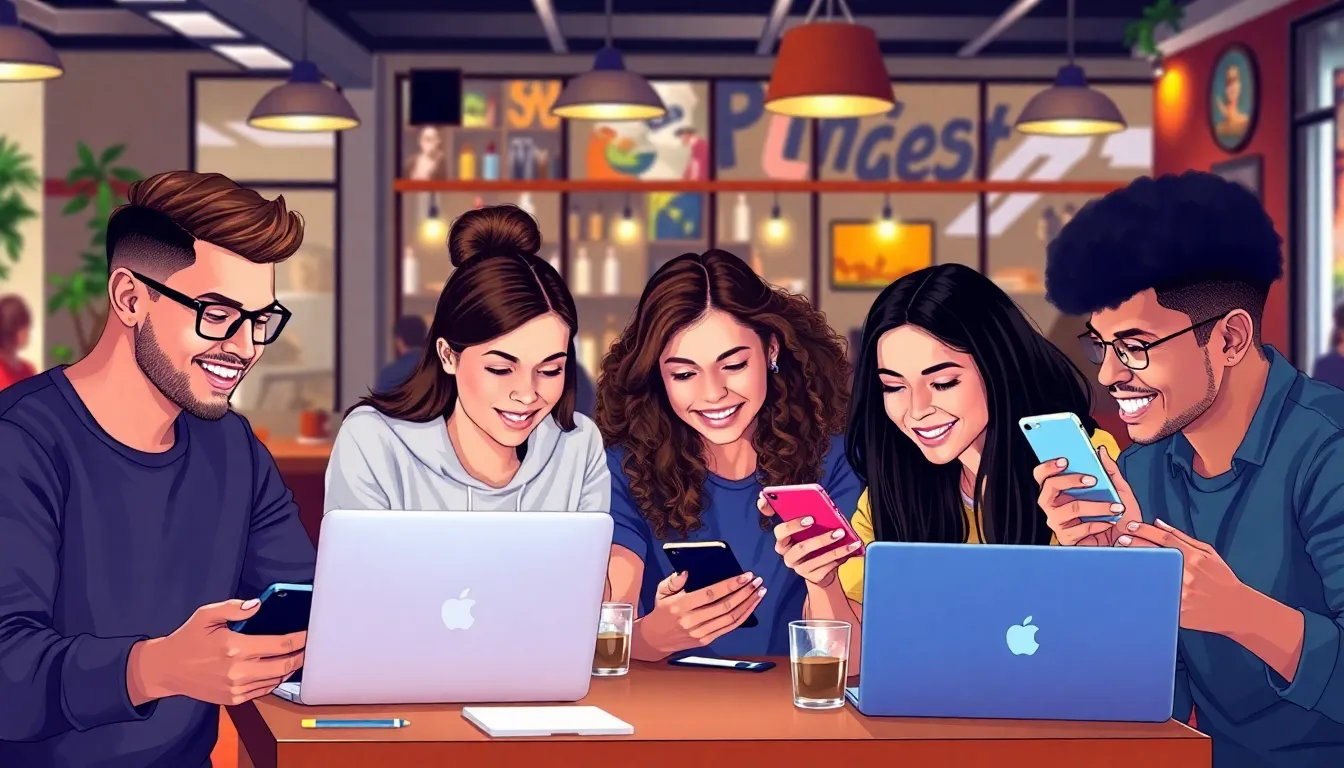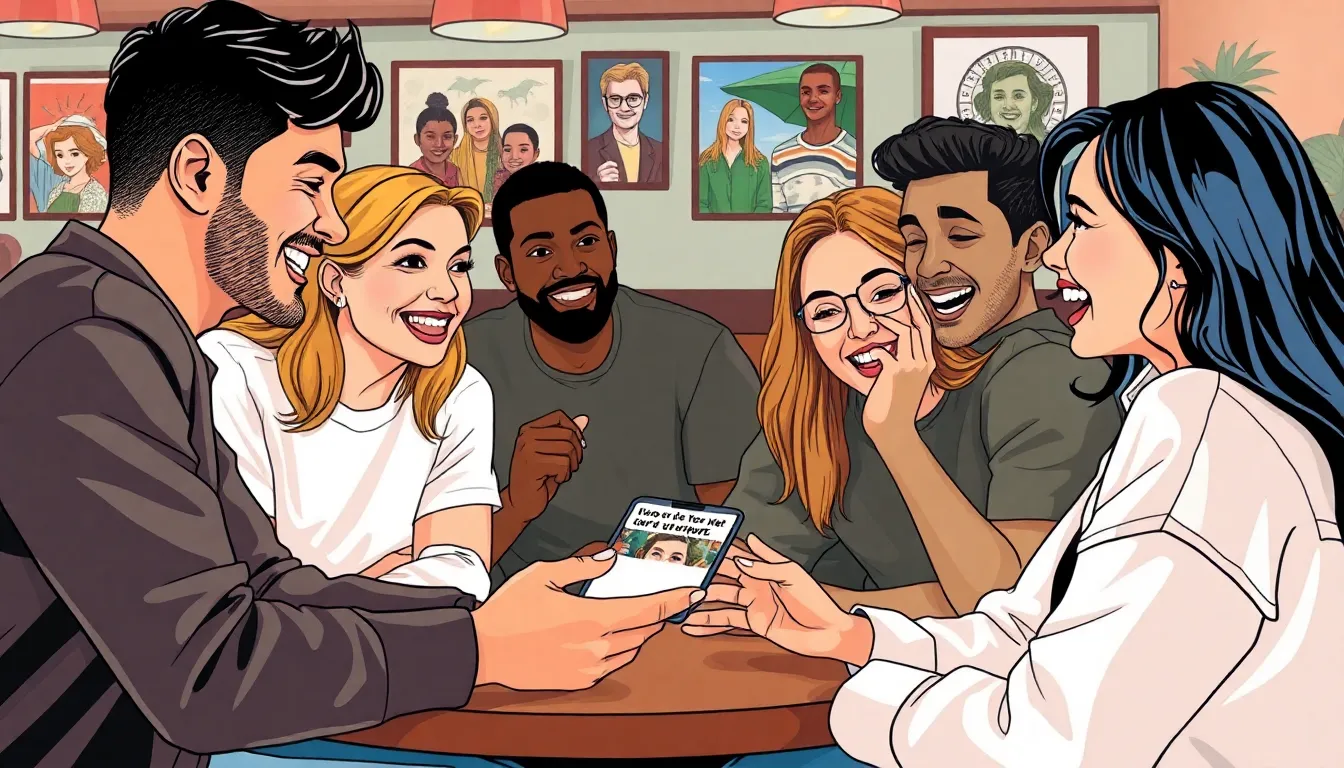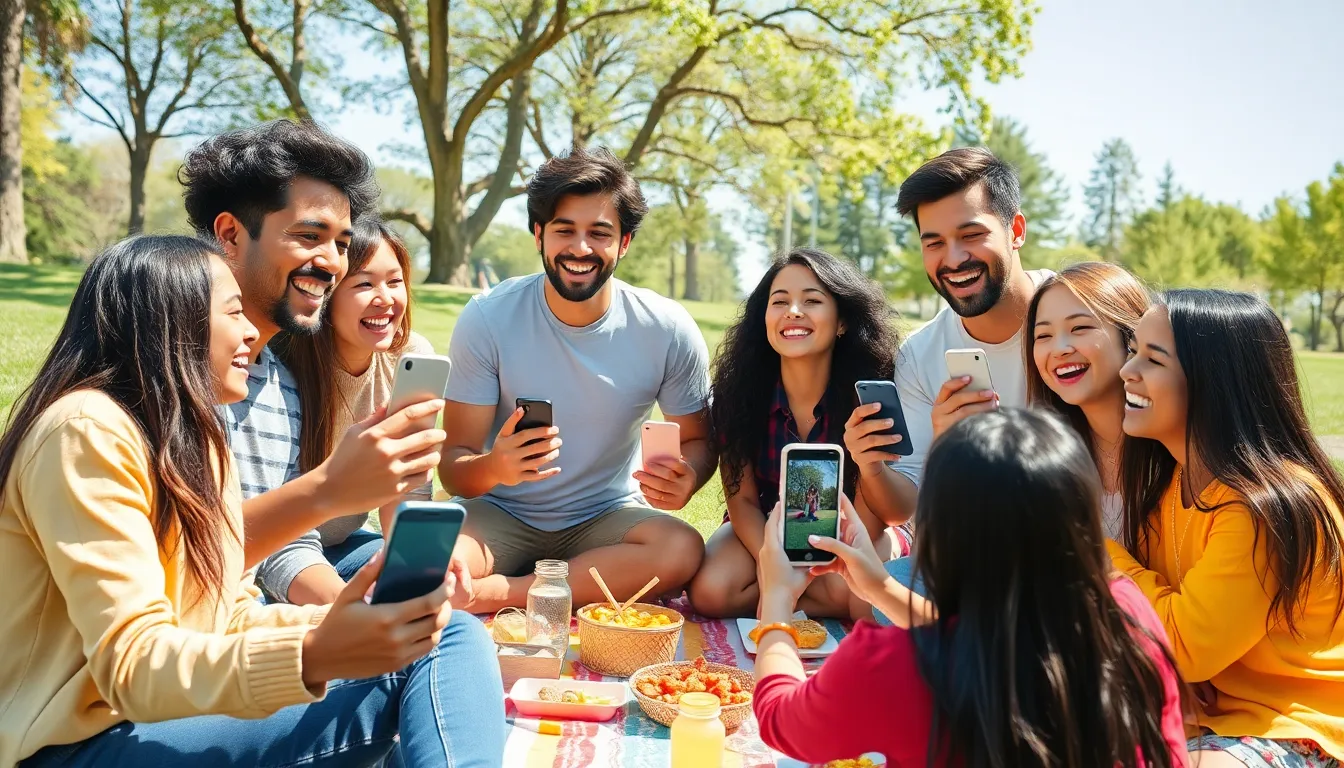In a world where memes spread faster than wildfire and TikTok dances can launch careers overnight, online culture has become the heartbeat of modern society. It’s not just a collection of hashtags and viral videos; it’s a vibrant tapestry woven from the threads of creativity, humor, and sometimes, pure chaos. Whether it’s the latest trend or a nostalgic throwback, online culture shapes how people connect, communicate, and even shop.
Table of Contents
ToggleOverview of Online Culture
Online culture comprises the shared behaviors, norms, and practices emerging from digital interactions. It shapes how individuals engage with content and with each other, often driven by memes and trends. In recent years, platforms like TikTok catalyzed rapid cultural exchange, making it easier for ideas to transcend borders.
Technology plays a crucial role in online culture, facilitating the exchange of ideas through social media, blogs, and forums. Various mediums enable diverse voices to be heard, transforming the way communities form and communicate. Rapid developments in streaming and gaming also contributed significantly, creating new avenues for interaction.
The blend of creativity and humor characterizes online culture, allowing users to engage with content playfully. Videos, such as viral challenges and reaction clips, invite participation while fostering a sense of belonging. Content often reflects the zeitgeist, encapsulating contemporary issues in a digestible format.
Furthermore, the impact of influencers cannot be underestimated. Influencers shape perceptions and drive consumer behavior by promoting products and lifestyles. Each endorsement reaches vast audiences, leading to trends that ripple across digital spaces. The symbiotic relationship between creators and their followers fosters trust and community.
Data suggests that 73% of millennials engage with social media daily, emphasizing its role in shaping identity and social norms. This constant connectivity reinforces the importance of online culture in daily life. Trends can spread rapidly, influencing conversations across different sectors, including fashion, politics, and entertainment.
Online culture thrives on shared experiences, making it a facet of modern life that demands attention and understanding. Recognizing its influence equips individuals and businesses alike to navigate this evolving landscape effectively.
Evolution of Online Culture

Online culture has experienced significant transformation since its inception. This evolution reflects changes in technology, communication styles, and societal norms.
Early Days of the Internet
During the early days of the Internet, users primarily communicated through text-based platforms such as email and forums. These platforms facilitated simple exchanges of information, allowing people to connect over shared interests. As communities formed within these spaces, the emergence of early websites and chat rooms laid the foundation for digital culture. Memes started circulating, although on a smaller scale compared to today’s standards. Content creators began to form communities, fostering a sense of belonging that would grow over time.
Social Media Revolution
Social media transformed online culture significantly after 2004, when Facebook launched. Platforms like Twitter and Instagram followed, enabling users to share multimedia content instantly. Engagement surged, with 73% of millennials engaging with social media daily. This shift changed how information spread, allowing trends to go viral rapidly. Influencers emerged, altering perceptions and consumer behavior through their endorsements. Content became more diverse, reflecting a broader range of voices and perspectives in online interactions. The rapid evolution of social media continues to shape identities and social norms, further embedding online culture into daily life.
Key Elements of Online Culture
Online culture comprises various elements that shape digital interactions. Memes and virality play a significant role, driving engagement across platforms.
Memes and Virality
Memes serve as a unique form of cultural currency, spreading quickly and gaining popularity. Visual humor or satirical comments often conveys complex ideas simply. The ability to adapt memes for different contexts fosters a shared understanding among users. Studies show that 55% of adults aged 18-29 regularly share memes. Viral content engages users, encouraging participation and resharing. For instance, platforms like TikTok rely on viral challenges to amplify trends rapidly. Content can flourish or fade based on audience interaction, revealing the fluid nature of online culture.
Online Communities and Subcultures
Online communities reflect diverse interests and identities, allowing individuals to connect over shared passions. Forums, social media groups, and platforms like Discord facilitate discussions around niche topics. The rise of subcultures, including fandoms and interest-based groups, creates vibrant micro-ecosystems. According to research, 57% of users find a sense of belonging in online communities. These spaces encourage collaboration, support, and creativity among members. Engaging in subcultures enables individuals to express themselves freely, often leading to the formation of new social norms within the larger digital landscape.
Impact of Online Culture
Online culture significantly influences communication methods and societal dynamics. It shapes interactions in ways that redefine traditional communication.
Influence on Communication
Online platforms transform how people communicate. Texting, emojis, and GIFs replace long-form messages, fostering concise expression. Instant notifications create urgency, prompting immediate responses. Virtual interactions often lack non-verbal cues, which affects tone and meaning. Despite these challenges, digital tools enable connection across global distances, allowing diverse conversations. With 73% of millennials engaging on social media daily, these channels enhance both personal and professional communication. Online culture has turned sharing memes and trends into a common conversational practice, bridging gaps in understanding among various demographics.
Effects on Society and Politics
Online culture plays a crucial role in societal change and political movements. Social media amplifies voices that challenge the status quo, enabling grassroots activism. Viral content can spark discussions around important issues, influencing public opinion. With 57% of users finding community in online spaces, these environments foster collaboration on social matters. Political campaigns increasingly leverage platforms to connect with younger voters, highlighting the necessity of engaging online audiences. Data shows trends spill into multiple sectors, reshaping how information is disseminated and received. Ultimately, online culture not only reflects society but actively molds political landscapes and social dynamics.
Online culture is a powerful force that shapes modern society in ways that are both profound and far-reaching. It influences how people connect and communicate while driving trends that impact various aspects of life. As technology continues to evolve the dynamics of online interaction, the importance of understanding these cultural shifts cannot be overstated.
Engagement through memes and viral content fosters community and belonging, while influencers reshape consumer behavior. By recognizing the nuances of online culture, individuals and businesses can effectively navigate this ever-changing landscape, ensuring they remain relevant in a world where digital interactions are the norm. Embracing this culture is essential for anyone looking to thrive in today’s interconnected society.



